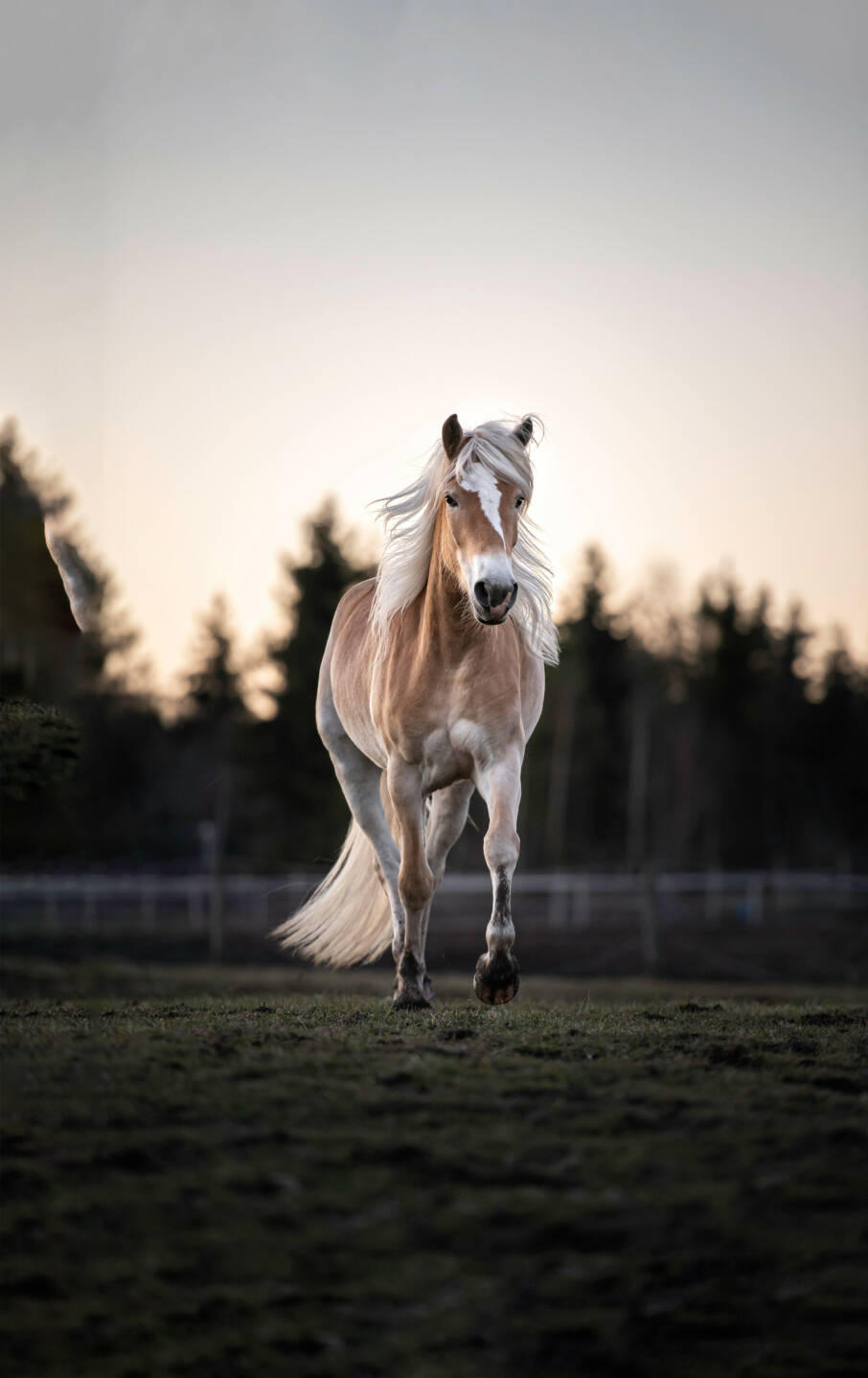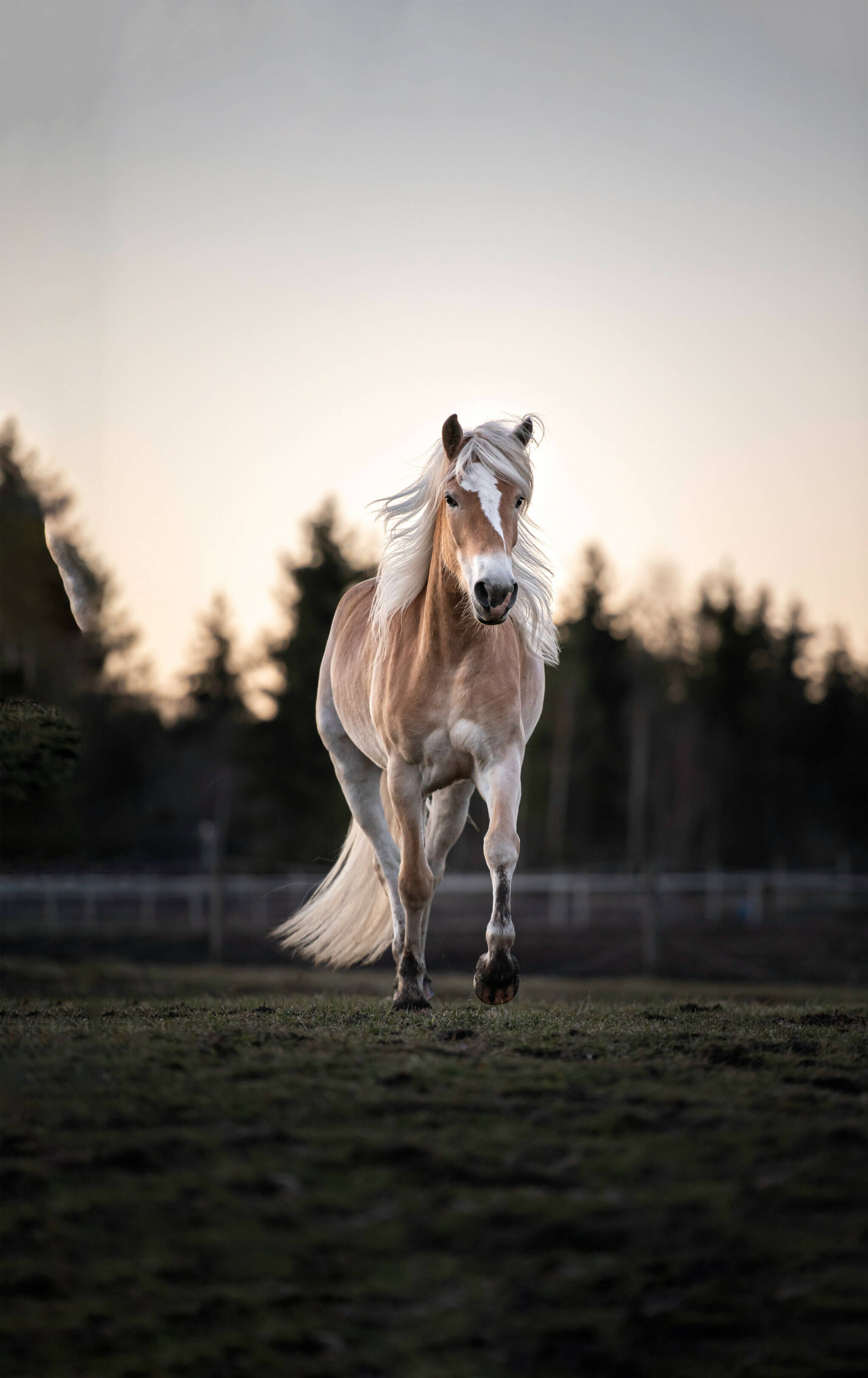Bettina Hvidemose Riisberg

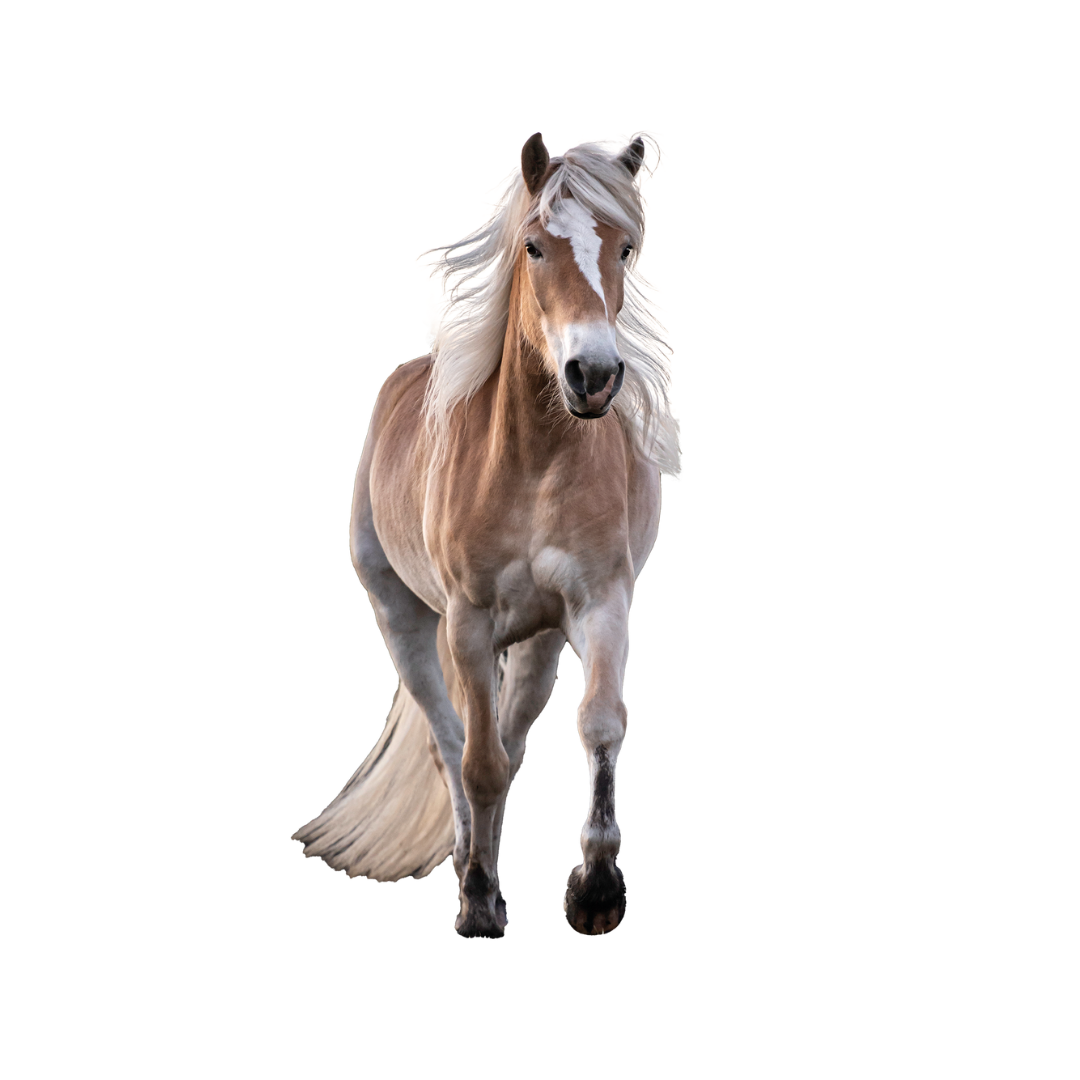
neurotransmitters
THE HORSE'S BRAIN
Sources: Dr. Stephen Peters & Martin Black: Evidence-Based HorseManship // Janet Jones: Horse Brain, Human Brain: The Neuroscience of Horsemanship // Suzanne Rogers: Equine Behavior in Mind - Applying Behavioral Science


Adrenalin
Another neurotransmitter and hormone that triggers positive reactions in the horse is serotonin. It helps to stabilize the mood and gives a feeling of well-being. At the same time, this hormone helps reduce appetite, digestion and sleep. Deficiency of serotonin can lead to inappropriate regulations in the brain and nervous system and thus cause stress and physiological imbalances.
Serotonin is an important component in a complex balance of hormones, and therefore, excess serotonin can present challenges. It very rarely happens and you cannot praise your horse to the extent that it creates an imbalance. From a training perspective, it is still appropriate and desirable to trigger serotonin in the brain - and this is done only with lots of positive interaction, praise, patience, and cooperation.


Glutamate
The neurotransmitter glutamate strengthens the connection between the horse's various brain cells and nerve cells. Thus, it is an important substance in maintaining a balanced and well-functioning nervous system. Just as it is important when the horse needs to learn new things and form new connections in the brain. Any form of learning creates a small physiological change in the brain, and glutamate is necessary for this to happen.
We often say, that in order to be good at something you have to repeat it. This also applies to horses. Repetition strengthens the neurological pathways that glutamate is responsible for establishing. The more repetitions of successful training, the more the brain changes in the direction we want it to. So, it pays off to be patient and repeat an exercise many times. Too little glutamate, in short, results in impaired learning.
Glutamate is also involved in a process that reduces the activity of brain cells, and therefore, also has an inhibitory effect on anxiety and learned stress. It is important that the horse is continuously challenged and developed without creating anxiety, conflict, stress and frustration.


Serotonin
Another neurotransmitter and hormone that triggers positive reactions in the horse is serotonin. It helps to stabilize the mood and gives a feeling of well-being. At the same time, this hormone helps reduce appetite, digestion and sleep. Deficiency of serotonin can lead to inappropriate regulations in the brain and nervous system and thus cause stress and physiological imbalances.
Serotonin is an important component in a complex balance of hormones, and therefore, excess serotonin can present challenges. It very rarely happens and you cannot praise your horse to the extent that it creates an imbalance. From a training perspective, it is still appropriate and desirable to trigger serotonin in the brain - and this is done only with lots of positive interaction, praise, patience, and cooperation.

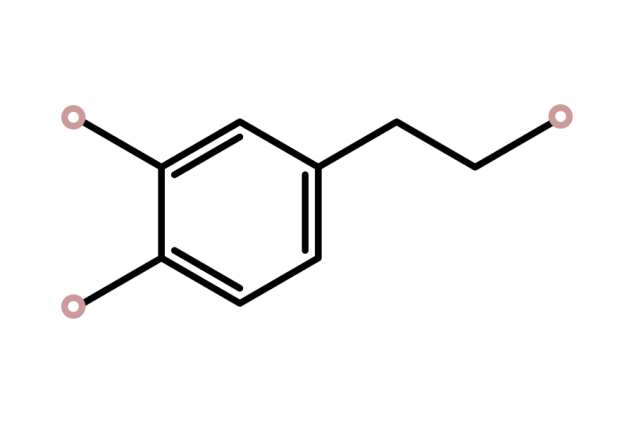
Dopamin
Dopamine is a neurotransmitter - a chemical messenger in the brain - and a hormone that is important for learning and movement. In addition, dopamine is essential for the horse's motivation and attention. When you succeed with something and get excited about it, this feeling is triggered by the release of dopamine in the brain. Furthermore, we know that dopamine helps to stimulate the so-called parasympathetic nervous system. It is the part of the nervous system that makes the horse, as well as the human, relax and be calm.
It is considered a sign of something good if the horse smacks, yawns or licks its mouth. This can be seen, for example, in training contexts, or when a therapist works with relaxing the horse's body. Science has shown that these patterns of behavior are a product of dopamine release in the horse's brain and thus an expression of something pleasant.
In other words, dopamine is a substance in the brain that is associated with excitement and calm. Therefore, it is of course desirable that our training and interaction with the horse is dopamine-triggering. If the horse is good at relaxing in training and you see the smack, yawn and lick around the mouth along with a relaxed body language, it is a sign that your training methods are working appropriately for your horse.
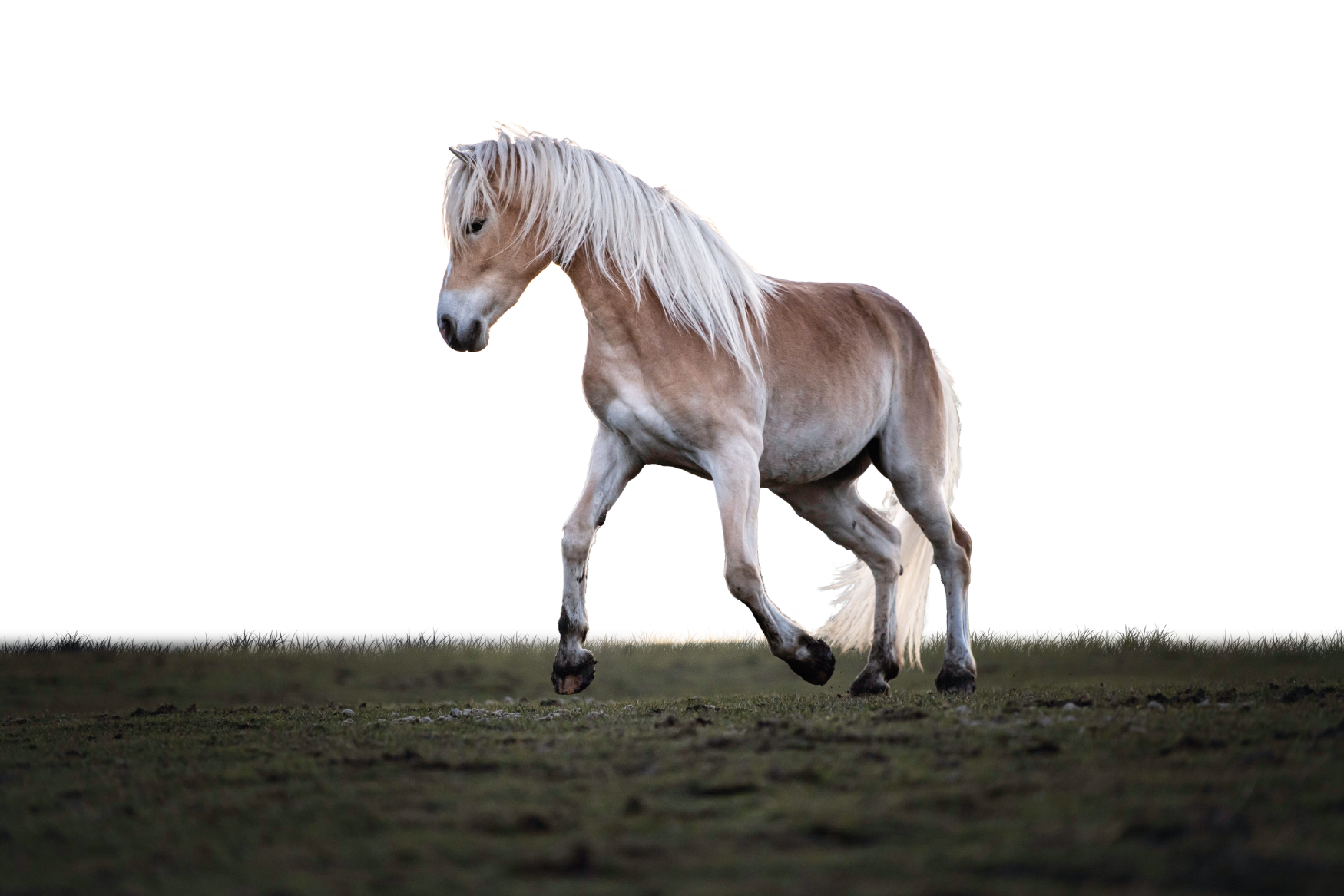
The big question is how you utilize your knowledge of the chemistry of the horse's brain and make sure to create a mixture of neurotransmitters in the horse, which assures the best basis for a well-balanced behavior. It creates a good collaboration between the two of you and helps to increase the welfare of the horse. An appropriate balance in the brain is, in short, dependent on a well-balanced nutrition, appropriate training and a healthy physique.
Nutrition
Well-balanced nutrition is an important player in the creation of neurotransmitters. Certain nutrients, vitamins and minerals are necessary for the horse to form the various neurotransmitters. For example, if there is a deficiency of the tryptophan and / or B vitamins in the horse's diet, this can make it difficult for the horse to produce serotonin. There are, of course, many other things to consider, which is why it is always recommended that you seek professional and qualified help for the composition of a feeding plan for the individual horse.
Training
When we train our horses, the inputs we give them are crucial to the reactions from the horse. If we push it too much or expose it to something that hurts or is uncomfortable, then the adrenaline level will increase. It can result in stress and sensitivity and create behavioral problems.
If, on the other hand, we are good at releasing our already light pressure when the horse responds to the rein or helpers, for example, we increase dopamine and serotonin, which results in a comfortable feeling in the horse.
When we continuously train, collaborate, and give the horse successful learning experiences, we help to maintain the glutamate balance. A healthy chemistry in the brain thus also reflects a well-balanced and adaptable horse - and that the training takes place without pain and discomfort, but with lots of successful experiences and confirmations of desired behavior.
Physics
The horse's physique also has a strong influence on the chemistry of the brain. Pain in particular causes an increased release of stress hormones. It happens because stress hormones have a pain-relieving effect. For example, there are many stories of people who have been injured in a traffic accident but are so shaken that they do not even notice that they are in pain until they calm down. This is because the shock releases a high concentration of stress hormones, and these relieve the pain until their level drops again.
As a prey animal, the horse's body is put together in such a way that it automatically releases more stress hormones if it is in pain. It helps it to relieve itself of the pain and ensure that it can escape from the predator in the wild without any problems even if it is hurt.
If the horse's stress level is permanently elevated - if it is oversensitive, is uncooperative or even seems anxious or nervous - then a physical examination is always recommended. Pain is often the direct cause of such type of behavior.
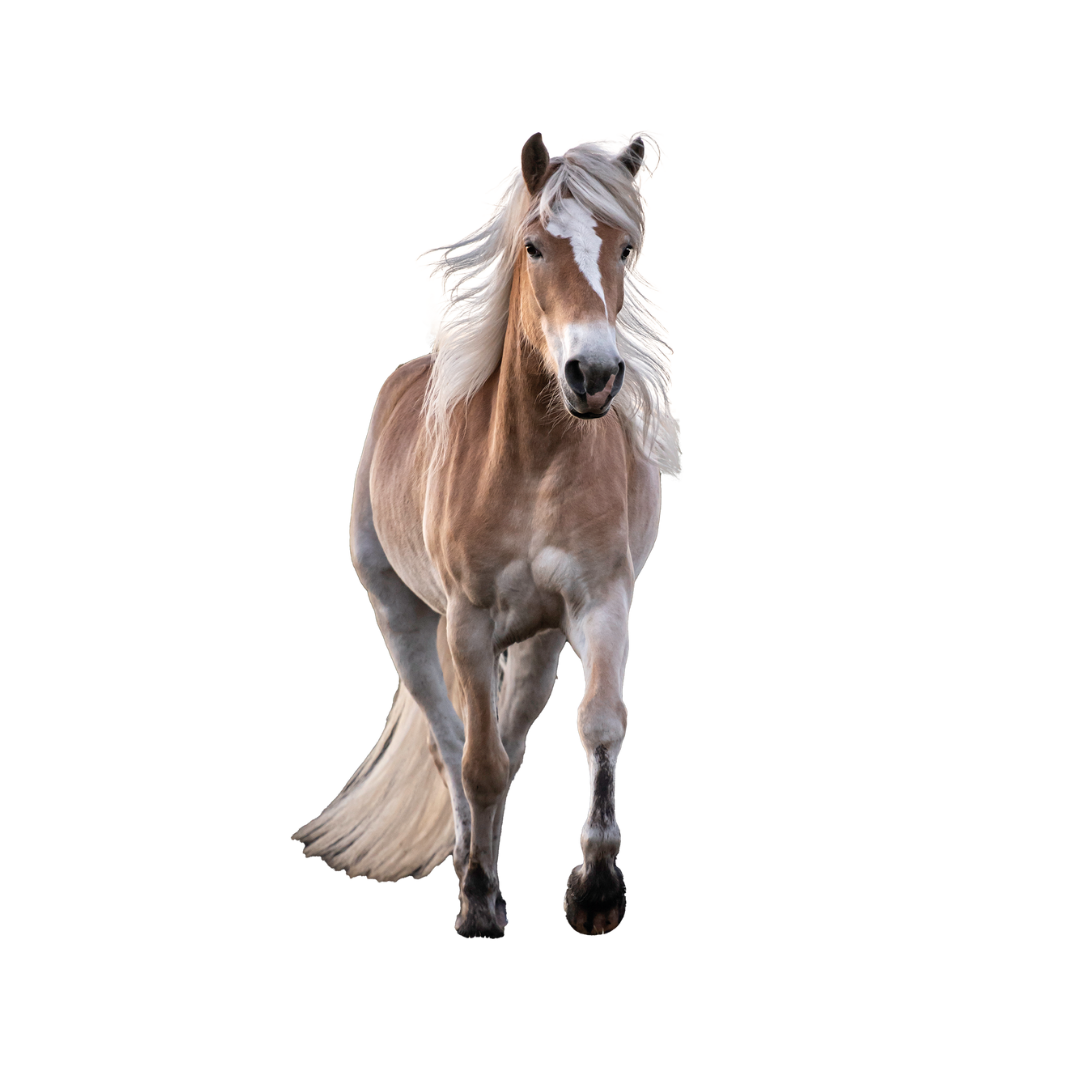

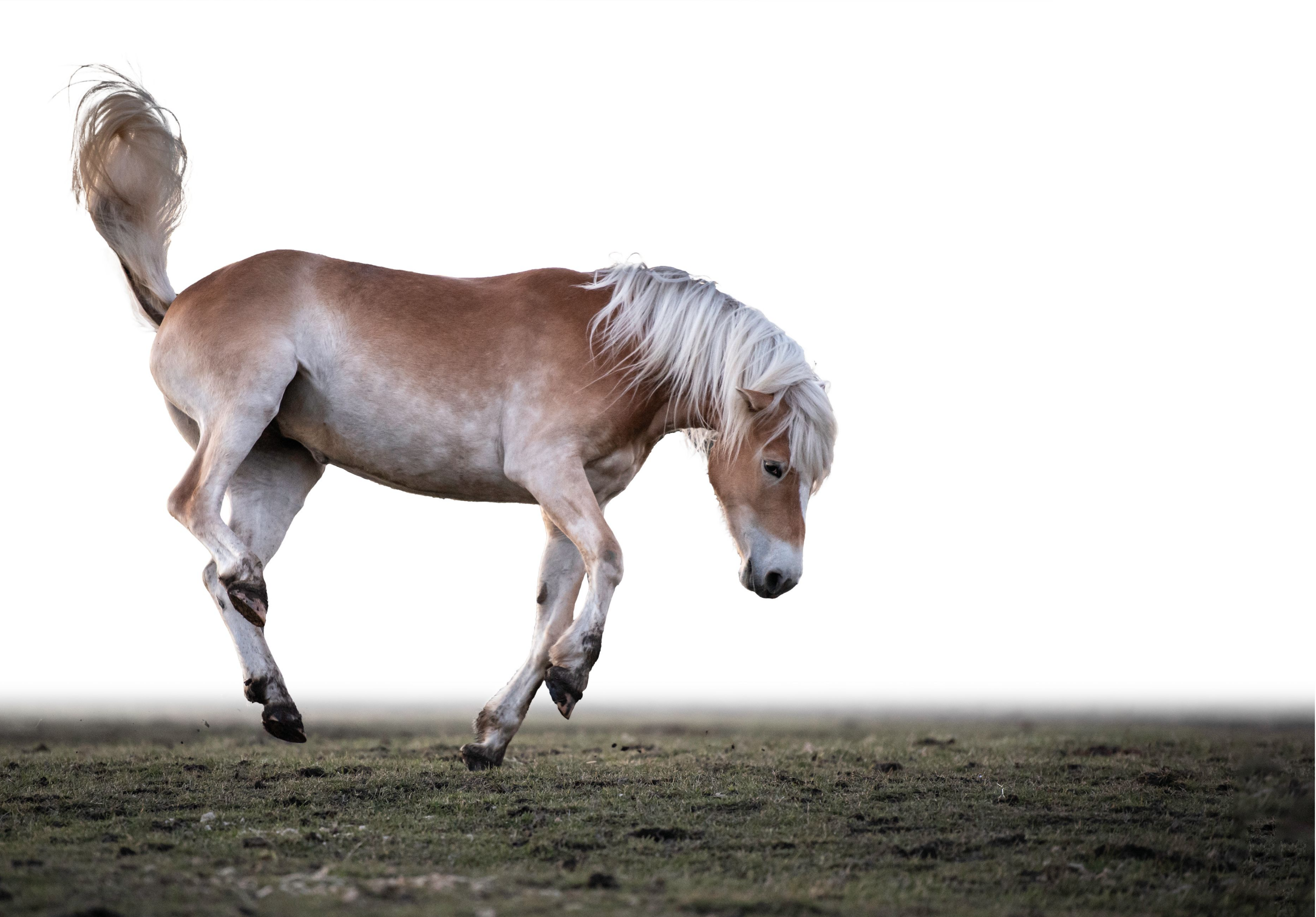


Serotonin
Another neurotransmitter and hormone that triggers positive reactions in the horse is serotonin. It helps to stabilize the mood and gives a feeling of well-being. At the same time, this hormone helps reduce appetite, digestion and sleep. Deficiency of serotonin can lead to inappropriate regulations in the brain and nervous system and thus cause stress and physiological imbalances.
Serotonin is an important component in a complex balance of hormones, and therefore, excess serotonin can present challenges. It very rarely happens and you cannot praise your horse to the extent that it creates an imbalance. From a training perspective, it is still appropriate and desirable to trigger serotonin in the brain - and this is done only with lots of positive interaction, praise, patience, and cooperation.


Glutamate
The neurotransmitter glutamate strengthens the connection between the horse's various brain cells and nerve cells. Thus, it is an important substance in maintaining a balanced and well-functioning nervous system. Just as it is important when the horse needs to learn new things and form new connections in the brain. Any form of learning creates a small physiological change in the brain, and glutamate is necessary for this to happen.
We often say, that in order to be good at something you have to repeat it. This also applies to horses. Repetition strengthens the neurological pathways that glutamate is responsible for establishing. The more repetitions of successful training, the more the brain changes in the direction we want it to. So, it pays off to be patient and repeat an exercise many times. Too little glutamate, in short, results in impaired learning.
Glutamate is also involved in a process that reduces the activity of brain cells, and therefore, also has an inhibitory effect on anxiety and learned stress. It is important that the horse is continuously challenged and developed without creating anxiety, conflict, stress and frustration.
Bettina Hvidemose Riisberg



Adrenalin
Another neurotransmitter and hormone that triggers positive reactions in the horse is serotonin. It helps to stabilize the mood and gives a feeling of well-being. At the same time, this hormone helps reduce appetite, digestion and sleep. Deficiency of serotonin can lead to inappropriate regulations in the brain and nervous system and thus cause stress and physiological imbalances.
Serotonin is an important component in a complex balance of hormones, and therefore, excess serotonin can present challenges. It very rarely happens and you cannot praise your horse to the extent that it creates an imbalance. From a training perspective, it is still appropriate and desirable to trigger serotonin in the brain - and this is done only with lots of positive interaction, praise, patience, and cooperation.


Dopamin
Dopamine is a neurotransmitter - a chemical messenger in the brain - and a hormone that is important for learning and movement. In addition, dopamine is essential for the horse's motivation and attention. When you succeed with something and get excited about it, this feeling is triggered by the release of dopamine in the brain. Furthermore, we know that dopamine helps to stimulate the so-called parasympathetic nervous system. It is the part of the nervous system that makes the horse, as well as the human, relax and be calm.
It is considered a sign of something good if the horse smacks, yawns or licks its mouth. This can be seen, for example, in training contexts, or when a therapist works with relaxing the horse's body. Science has shown that these patterns of behavior are a product of dopamine release in the horse's brain and thus an expression of something pleasant.
In other words, dopamine is a substance in the brain that is associated with excitement and calm. Therefore, it is of course desirable that our training and interaction with the horse is dopamine-triggering. If the horse is good at relaxing in training and you see the smack, yawn and lick around the mouth along with a relaxed body language, it is a sign that your training methods are working appropriately for your horse.
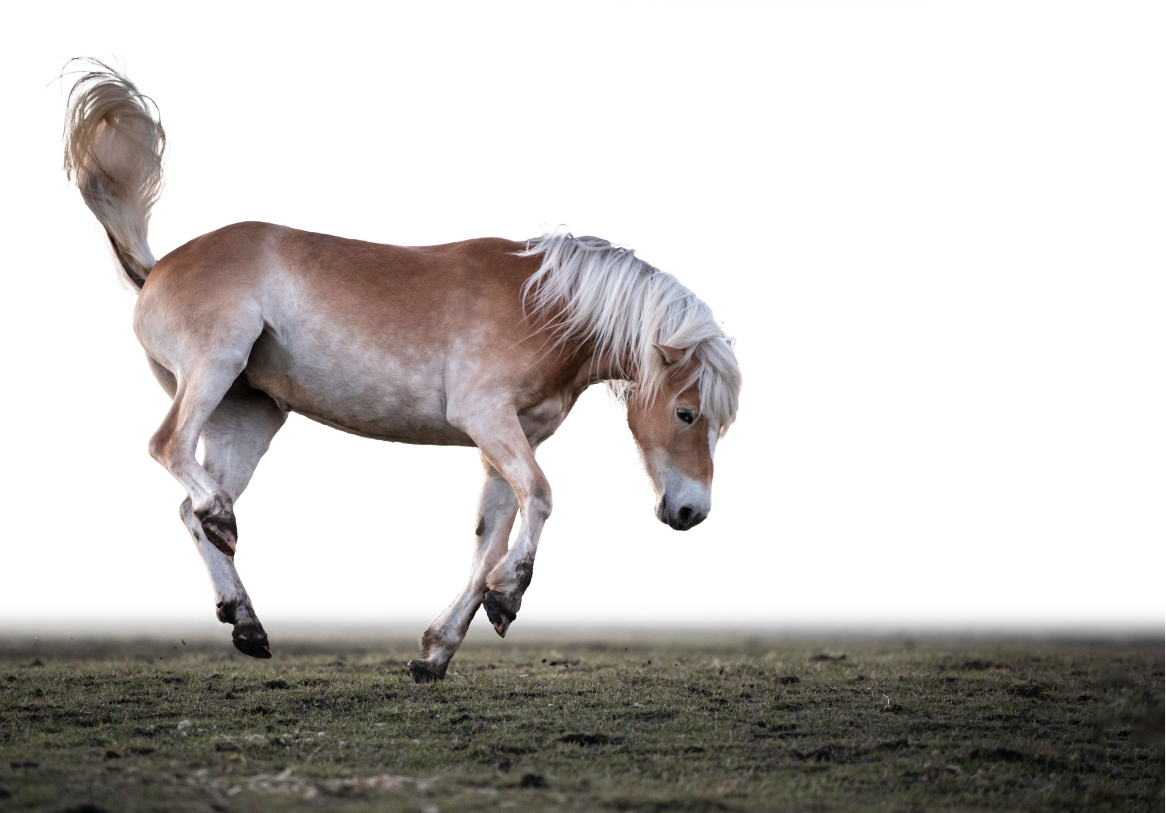
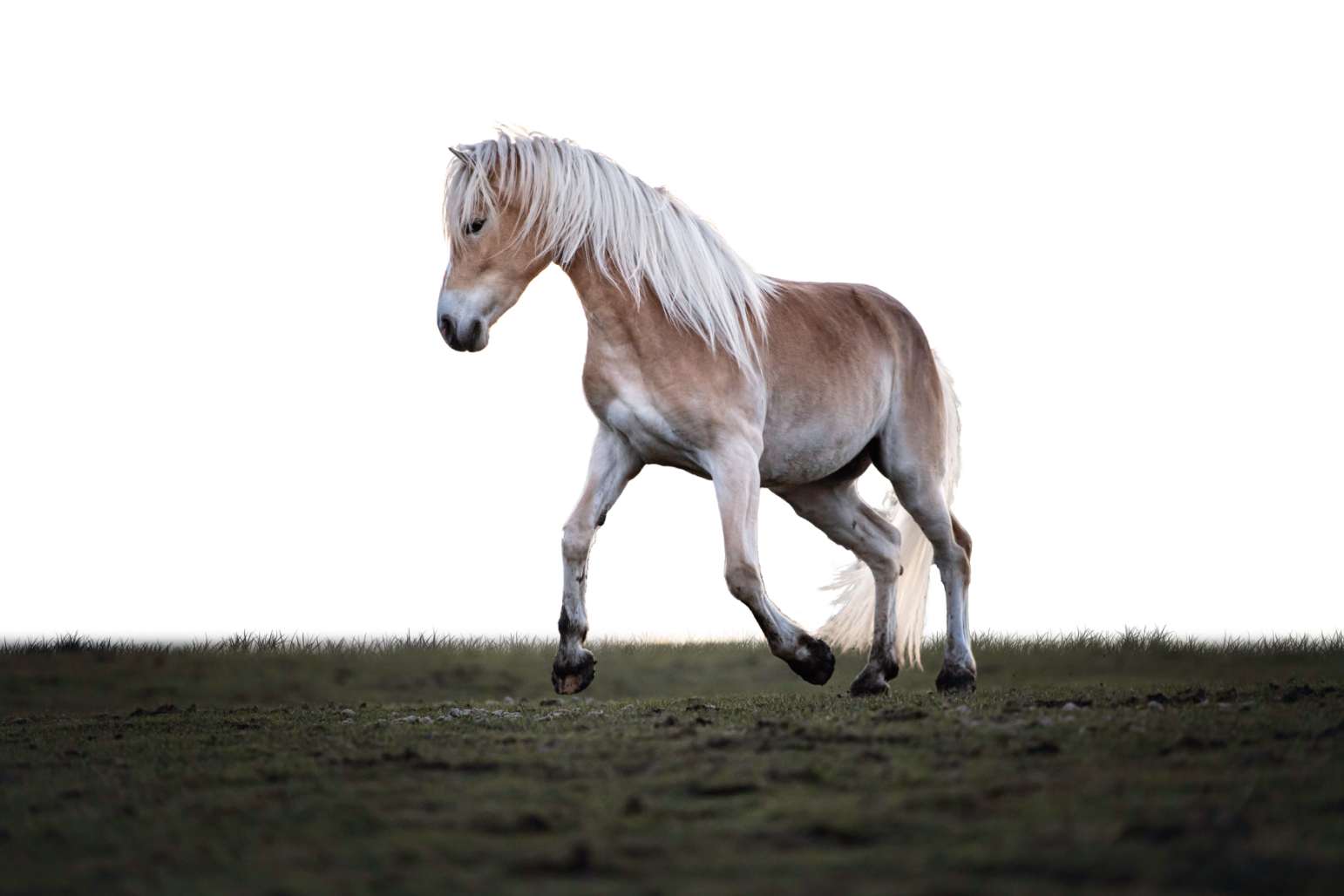
The big question is how you utilize your knowledge of the chemistry of the horse's brain and make sure to create a mixture of neurotransmitters in the horse, which assures the best basis for a well-balanced behavior. It creates a good collaboration between the two of you and helps to increase the welfare of the horse. An appropriate balance in the brain is, in short, dependent on a well-balanced nutrition, appropriate training and a healthy physique.
Nutrition
Well-balanced nutrition is an important player in the creation of neurotransmitters. Certain nutrients, vitamins and minerals are necessary for the horse to form the various neurotransmitters. For example, if there is a deficiency of the tryptophan and / or B vitamins in the horse's diet, this can make it difficult for the horse to produce serotonin. There are, of course, many other things to consider, which is why it is always recommended that you seek professional and qualified help for the composition of a feeding plan for the individual horse.
Training
When we train our horses, the inputs we give them are crucial to the reactions from the horse. If we push it too much or expose it to something that hurts or is uncomfortable, then the adrenaline level will increase. It can result in stress and sensitivity and create behavioral problems.
If, on the other hand, we are good at releasing our already light pressure when the horse responds to the rein or helpers, for example, we increase dopamine and serotonin, which results in a comfortable feeling in the horse.
When we continuously train, collaborate, and give the horse successful learning experiences, we help to maintain the glutamate balance. A healthy chemistry in the brain thus also reflects a well-balanced and adaptable horse - and that the training takes place without pain and discomfort, but with lots of successful experiences and confirmations of desired behavior.
Physics
The horse's physique also has a strong influence on the chemistry of the brain. Pain in particular causes an increased release of stress hormones. It happens because stress hormones have a pain-relieving effect. For example, there are many stories of people who have been injured in a traffic accident but are so shaken that they do not even notice that they are in pain until they calm down. This is because the shock releases a high concentration of stress hormones, and these relieve the pain until their level drops again.
As a prey animal, the horse's body is put together in such a way that it automatically releases more stress hormones if it is in pain. It helps it to relieve itself of the pain and ensure that it can escape from the predator in the wild without any problems even if it is hurt.
If the horse's stress level is permanently elevated - if it is oversensitive, is uncooperative or even seems anxious or nervous - then a physical examination is always recommended. Pain is often the direct cause of such type of behavior.
THE HORSE'S BRAIN
neurotransmitters
